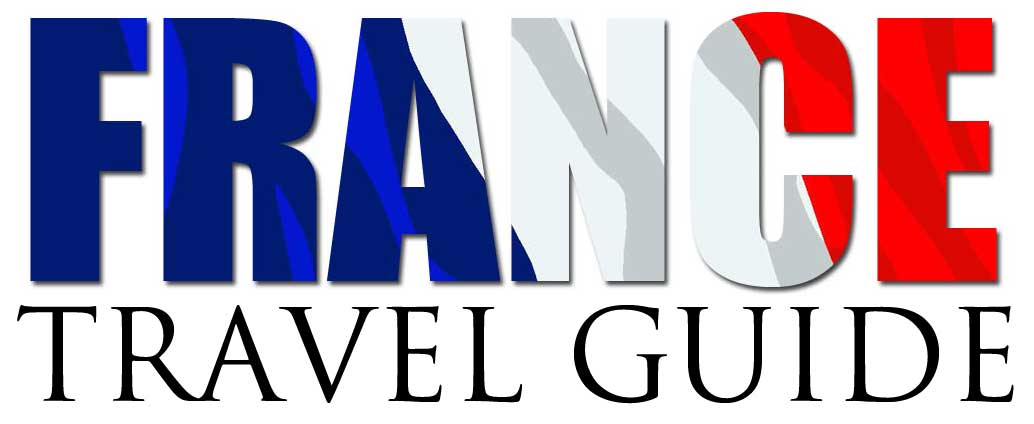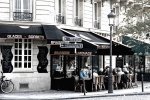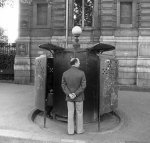driving in france
keeping it legal
OBSERVING THE LAW
Police have wide powers to check documents at any time and
to impose on-the-spot fines that can make your eyes water for almost all
driving offences. In the case of more serious offences, especially if alcohol
is involved, they may at their own discretion confiscate the vehicle.
Minimum age
The minimum age for driving in France is 18, even if you
hold a full driving licence from another country.
Documentation
Travellers from other European Union countries and North
America can drive in France with a valid national or home-state driving
licence. An international driving licence is useful but not
obligatory.
It is necessary to have the registration papers (logbook) and a nationality plate of an approved size.
Insurance cover is compulsory and although an International Motor Insurance Certificate (known in the UK as a green card) is no longer a legal requirement in France for vehicles registered in the UK, it is still the most effective proof of insurance cover and is internationally recognised by the police and other authorities. If you have comprehensive insurance, you may want to check that your insurance cover is unaffected by driving abroad; many insurers limit the number of days you can drive abroad.
Fluorescent jackets
When driving in France, don't forget to carry a fluorescent
jacket...All vehicles driving on French roads must carry a yellow fluorescent
jacket for each passenger in the car, that can be put on if the occupants have
to get out in an emergency. The jacket must be carried inside the car, not in
the boot (not in the trunk), and be readily accessible. Drivers not carrying
the obligatory jacket may receive an instant fine, if stopped by police.
Breath test kit
Drivers and motorcyclists are obliged to carry a breath test
in their vehicles. Foreign visitors and tourists also come under the law.
Anyone found not carrying a breath test kit will face a fine, and only
two-wheelers of under 50cc will be exempt.
Single use breath test kits are available in supermarkets, pharmacies and garages at a nominal cost (little more than 1€ each). So, it is a good idea to carry more than one, and use them if you think you've had too much to drink and drive.
Don't forget that the drink drive limit in France is lower than in the UK and the USA. The best advice is the same everywhere: DON'T DRINK AND DRIVE.
Warning triangle
In the case of a breakdown, a red warning triangle and hazard
warning lights are obligatory.
|
Seatbelts must be worn at all times when driving in France © ATOUT FRANCE/Cédric Helsly |
Lights
Full or dipped headlights must be used if it is raining, in poor
visibility and at night; use sidelights only when the vehicle is stationary.
Headlights should be adjusted for driving on the right. It is illegal to drive
with faulty lights, so it is advisable to take a full set of replacement bulbs
with you.
Use of mobile phones while
driving
Drivers caught using a mobile phone while driving are liable to an
on-the-spot fine.
Seatbelts
Seatbelts must be worn at all times when driving in France, by both
adults and children, and both in the back and front seats. Rear passengers can
only travel without seatbelts in the back of older cars in which they are not
fitted.
Children in cars
Children under 10 years old are not allowed to travel in the front seat
of a car, unless there are no back seats. Children under 10 years of age must
travel in the back, using an appropriate child seat or booster seat. Babies are
allowed to travel in the front passenger seat, but only when placed in an
approved rear-facing baby seat and the airbag is turned off.
BREAKDOWN OR ACCIDENT
If you are involved in any accident involving two or more vehicles, you will be asked to fill in a "Constat amiable" by the driver of a French car involved. This is standard practice.
If possible, call your insurance company at once on your mobile phone. They may put you in touch with a local French representative.
If you are involved in an accident involving any sort of injury - even if it is not your fault – you MUST remain until the police have come.
If your car is immobilised on or partly on the road due to a breakdown or an accident, you must set up your red warning triangle at a suitable distance behind the vehicle, to alert approaching traffic to the hazard, and you must wear a fluorescent jacket.
Recent Articles
-
French Food and Drink - No BS Guide for lovers of Food, Wine, Liqueurs
Aug 28, 19 03:18 AM
Our guide to French food and drink for those who love traditional French food along with our no BS guide to understanding French wine and liqueurs
-
Things To Do In Carcassonne The Ultimate Tourist Guide
Aug 24, 19 06:26 PM
The ultimate tourist guide to things to do in Carcassonne when you visit this wonderful town in Aude France. Discover the places to go and see in Carcassone.
-
Lyon Old Town Guide to Vieux Lyon
Aug 18, 19 07:48 AM
Your complete guide to Lyon old town otherwise known as the Vieux Lyon. Don't miss this amazing part of the city if you're visiting Lyon in France.
-
18 French Villages You Must Visit Most Beautiful Villages in France
Aug 17, 19 06:31 AM
Our guide to the 18 most beautiful French villages you simply must visit. Loads of info, photos and facts in our ultimate villages in France tourist guide
-
What a Pissoir - The True Story of France's Unique Urinals
Aug 13, 19 03:47 PM
Is there anything more French than a pissoir? Sadly on the decline nevertheless the pissor is an endring image of the country. This is their story





